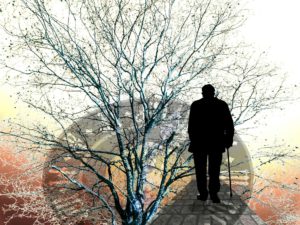Fight Seasonal Allergic Reactions With These Urgent Care Tips
Find out how to get relief from allergic reactions.
Spring allergy season is in full bloom, which means that allergen levels are through the roof right now. Pollen levels peak in the northeast part of the U.S. during April and May. If you are allergic to grass pollen, things will only get worse as the weeks go on. That means that your allergy symptoms — the itchy eyes, sneezing, and sniffling could stick around for months
If you suffer from a runny nose, itchy eyes and other hay seasonal allergy symptoms, you are not alone. More than 50 million Americans have allergies. Unfortunately, for the millions of allergy sufferers, springtime is the worst time of the year for allergic reactions.
Before you start any treatment, visit an urgent care center like Statcare to be sure that allergies are causing your troubles. Many other illnesses share the same symptoms as allergies. So, you really need to be sure that your symptoms are due to an allergic reaction so that you can get the appropriate treatment. Save a trip to the emergency room! Statcare has multiple urgent care locations and is open 7 days a week.
If you have seasonal allergies, make sure you seek treatment, as hay fever can trigger other common allergic reactions, such as:
- Asthma – Seasonal allergies can exacerbate asthma symptoms. Exposure to pollen can trigger deadly asthma attacks. In fact, a British teen died after suffering an asthma attack. His parents said that an allergic reaction to pollen was partially to blame for the asthma attack.
- Eczema/Atopic dermatitis – Hay fever is a common cause of this skin condition. Pollen is a known trigger for eczema.
- Sinusitis – Hay fever can cause prolonged nasal congestion, which can cause sinusitis, an infection of the membrane that lines the sinuses.
- Hives – This allergic skin rash can stem from various allergens.
- Conjunctivitis – Allergic reactions can cause eye inflammation, and itchy, watery eyes. Allergic conjunctivitis cases often increase during hay fever season.
Signs Of An Allergic Reaction
Here are some of the signs of seasonal allergies. Get medical care right away if you are experiencing these symptoms.
- Watery, itchy eyes
- Runny nose
- Sneezing
- Sore throat
- Coughing
- Fatigue
- Dark circles under the eyes
Allergy Do’s
- Visit an urgent care center like Statcare. If you have any of the above symptoms, come in for an allergy test. Most insurance plans cover blood work for seasonal allergies.
- Use air conditioning. Although spring might seem like a great time to open the windows, resist the temptation to do so. Using the air conditioning will help keep allergens out of your home.
- Stay inside when pollen levels are high. Check out the New York pollen forecast and avoid outdoor activities when the pollen counts are high.
Allergy Don’ts
- Ignore the symptoms. Allergy symptoms can be more than a nuisance — they can be deadly. Exposure to pollen can cause severe allergic and asthma reactions. Therefore, never ignore these symptoms.
- Automatically reach for over-the-counter remedies. Although there are plenty of OTC allergy medications available, visit Statcare before taking these medications to make sure that seasonal allergies are to blame for your symptoms. Also, a doctor can help you select the best treatment for your particular symptoms. There are many options and not all of them are right for everyone.
For more health tips and advice, sign up for our newsletter. Schedule your appointment for seasonal allergy treatment in New York. Contact us today or find a walk-in clinic near me.




